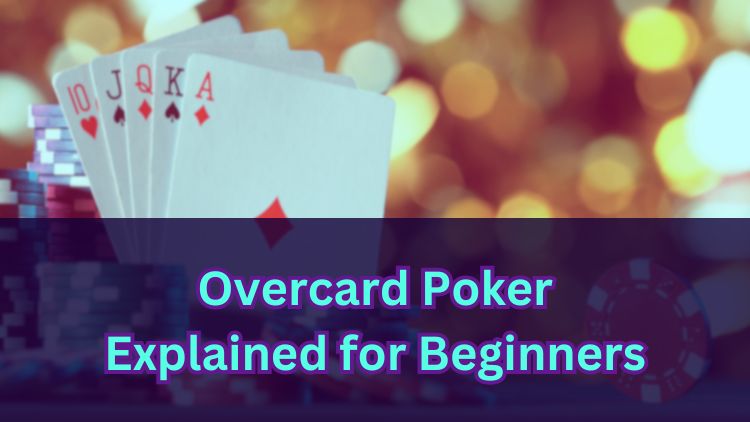
Poker has its own language, and one term you’ll often hear is “overcard.” Understanding what overcards are can help you get a better grasp of the game and make more informed decisions when you’re just starting out. But what exactly are overcards, and how do they affect your play?
In this blog post, we will explain how to recognise overcards, explore common situations where they come into play, and break down how they can influence the outcome of a hand. Read on to learn more.
Spotting Overcards on the Table
An overcard is any card in your hand that ranks higher than the community cards on the table. For example, if the community cards are 7, 4, and 2, and you hold a queen, that queen is an overcard because it ranks above the highest card on the table.
To spot overcards, simply compare your hand to the cards laid out on the board. If one or both of your cards are higher than any community card, those are your overcards. Having two overcards gives you more opportunities to pair one of them if a matching high card comes up later.
Keep in mind, though, that having overcards doesn’t guarantee you’ll win the hand, so if you choose to play, it’s important to do so thoughtfully.
Understanding Overcard Hands
An overcard hand means that at least one of your cards ranks higher than any of the community cards. For instance, if the board shows 6, 9, and 10, and you hold an ace, your ace is an overcard.
While overcards can improve your hand if the right cards appear in later rounds, if you choose to play, it’s important to constantly assess your cards alongside the community cards. This will help you judge how strong your hand might become, without assuming the outcome too soon.
Why Overcards Change the Game
If you’re playing poker, overcards increase your options as new cards are dealt. If the board shows low cards and you hold higher cards, you could form the leading pair if the right card appears.
Knowing that overcards affect your hand’s strength can influence when you choose to keep playing or fold before more money goes into the pot. Keeping this in mind will help you make more informed decisions during the game.
Typical Scenarios With Overcards
Here are some examples of hands you might see if you choose to play:
-
Holding an ace and a king when only lower cards appear on the table—both your cards are overcards.
-
Having one overcard, like a queen, when the highest community card is a jack. Drawing another queen later might give you the winning pair.
-
Facing aggressive bets from other players on a low-value board. If you have overcards, your decision will often depend on the chances of pairing your high cards in upcoming rounds.
Learning how to handle these situations will help you make more informed decisions during play. And remember, setting responsible limits always helps keep the game enjoyable.
Misconceptions About Overcards
It’s a common misconception that overcards automatically mean you’re in a strong position. However, overcards only become valuable if they form pairs or stronger hands by the end.
Some players think overcards are better than made hands like pairs or three of a kind. In reality, a made hand will often hold its lead unless your overcards improve on the next deal.
If you choose to play poker, the best approach to the game is to evaluate each hand individually and to play responsibly, sticking to limits you’re comfortable with.
Online Poker Sites for UK Players
If you choose to play online poker, it’s important to select a site licensed by the UK Gambling Commission. This ensures the games are fair and your rights as a player are protected.
Most UK poker sites offer a variety of games and betting limits, so you can find something that suits your level of experience. Look out for responsible gambling tools and clear customer support options, and always read the terms and conditions before depositing any money.
Setting a budget beforehand and taking regular breaks can help you enjoy poker responsibly. If you ever need additional support, organisations like GamCare and BeGambleAware are always there to help.
**The information provided in this blog is intended for educational purposes and should not be construed as betting advice or a guarantee of success. Always gamble responsibly.
